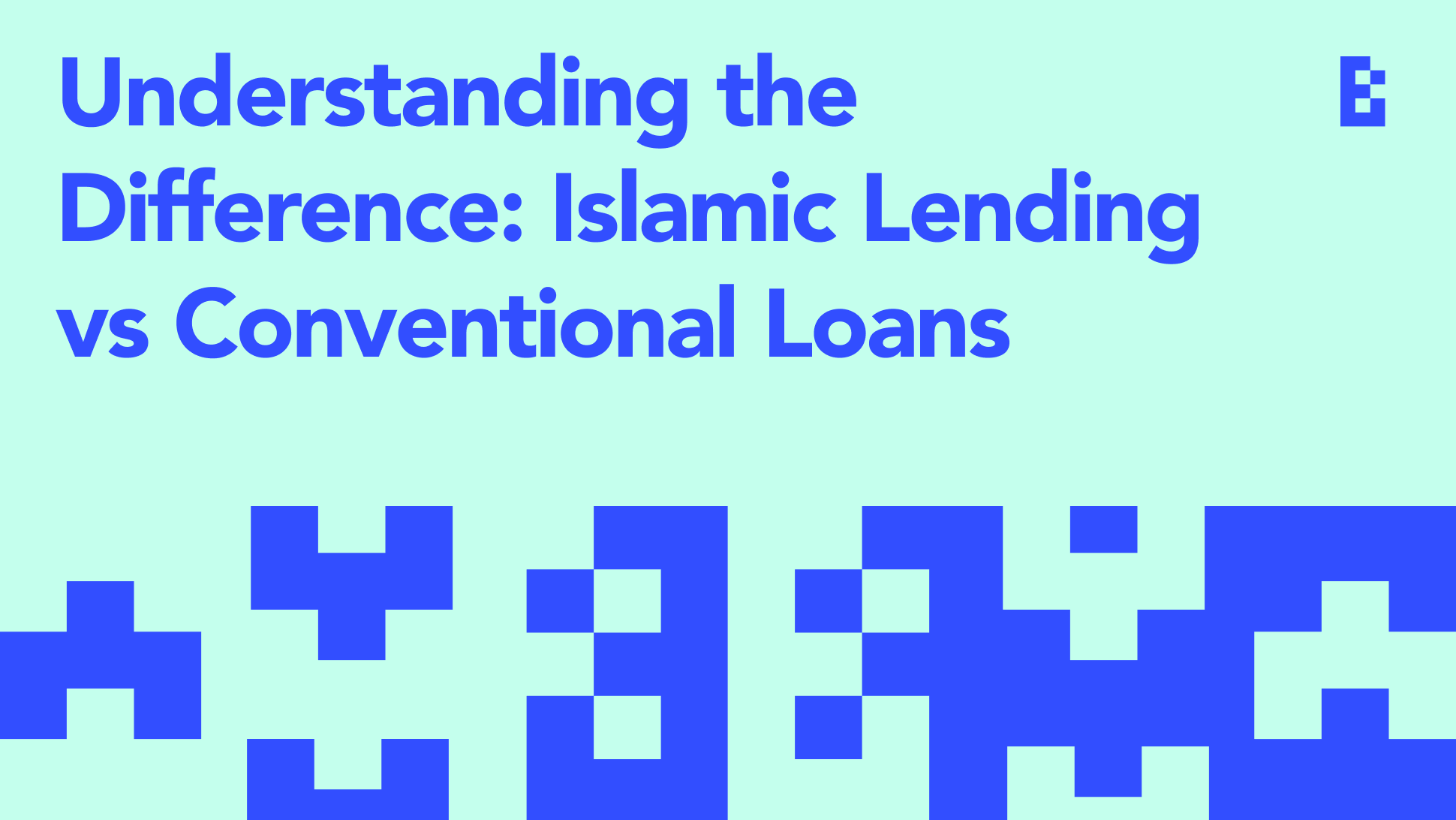The financial world operates largely under conventional lending principles, where loans are given with interest, and lenders earn profits based on this interest. However, Islamic finance offers a distinctly different approach, one that is guided by religious principles aimed at promoting fairness, justice, and transparency.
BarakaFi, a leading platform in decentralized finance (DeFi), integrates these Islamic finance principles into its operations, providing a space where users can lend and borrow without violating the prohibitions of riba (usury).
In this blog, we’ll explore the fundamental differences between Islamic lending and conventional loans.
What is Riba (Usury) and Why is it Prohibited in Islam?
In Islamic finance, the concept of riba (interest) is central. Riba refers to any guaranteed interest on a loan, regardless of the outcome of the investment. It is explicitly prohibited in the Qur’an due to its exploitative nature. In a riba-based transaction, the borrower is burdened with a debt that increases regardless of their ability to repay, creating an unjust power imbalance between the lender and borrower.
One of the key Quranic verses that prohibit riba is:
“Those who devour usury will not stand except as stand one whom the Devil has driven to madness by (his) touch. That is because they say: ‘Trade is just like riba.’ But Allah has permitted trade and forbidden riba.” (Surah Al-Baqarah, 2:275)
The prohibition of riba ensures fairness, preventing lenders from exploiting borrowers. Instead of the lender profiting from the debt, Islamic finance encourages partnerships that are based on shared risk and reward, ensuring that both parties benefit equally from the transaction.
Conventional Loans: The Interest-Based Model
Conventional loans are structured around the concept of interest. A borrower takes a loan from a bank or financial institution and agrees to repay the principal amount along with interest over a specified period. The interest rate is typically set in advance and remains fixed or variable based on market conditions.
In conventional finance, interest is viewed as the price of borrowing money, and the lender benefits from the interest regardless of whether the borrower succeeds or fails in their business or investment ventures. The key issues with this model from an Islamic perspective are:
- Exploitation: Borrowers are often required to pay more than the initial amount borrowed, regardless of their financial success or failure.
- Unequal Risk Sharing: The borrower assumes all the financial risk, while the lender is guaranteed a profit through interest.
- Inequitable Profit Generation: Interest leads to profit without any contribution to value creation, which is considered unjust in Islamic finance.
Islamic Lending: Profit and Loss Sharing
Islamic lending, by contrast, emphasizes shared risk and reward, and does not allow for guaranteed profits. Instead of interest, Islamic finance employs various ethical financing models, such as Mudarabah and Murabaha, to facilitate transactions.
Mudarabah (Profit-Loss Sharing):
In a Mudarabah contract, one party provides the capital (the lender or investor) while the other provides expertise or labor (the borrower or entrepreneur). The profits from the venture are shared between the parties based on a pre-agreed ratio.
However, if the business venture results in a loss, it is borne entirely by the investor (the lender), as the borrower is contributing their labor and expertise. This creates a fairer model where both parties share in the profits or losses of the venture.
Murabaha (Cost-Plus Financing):
Murabaha involves the lender purchasing an asset and selling it to the borrower at a marked-up price. This markup represents the lender’s profit, which is agreed upon in advance. However, unlike interest, this is a one-time fixed profit from the sale of an asset, and the borrower knows the full cost upfront. The transaction is transparent, and there is no uncertainty or exploitation, as both parties agree to the terms before the deal is finalized.
Ijara (Leasing):
Islamic finance also allows for leasing arrangements, where an asset is leased to the borrower for a fixed period in exchange for rental payments. This is structured in a way that is similar to renting but ensures that the lessor does not profit from interest on a loan.
BarakaFi’s Approach: Sharia-Compliant DeFi Lending and Borrowing
BarakaFi, a decentralized finance platform built on the HAQQ Network, offers a Sharia-compliant alternative to traditional finance. In this ecosystem, lending and borrowing take place without the involvement of interest, adhering to the ethical principles of Islamic finance. Instead of riba-based loans, BarakaFi operates using repurchase agreements that are aligned with Islamic law.
Quranic Teachings on Fair Transactions
The Qur’an lays out clear guidance on fair transactions and ethical financial dealings, emphasizing that interest-based transactions are prohibited:
“Allah has permitted trade and has forbidden usury.” (Surah Al-Baqarah, 2:275)
“O you who have believed, do not consume usury, doubled and multiplied, but fear Allah that you may be successful.” (Surah Al-Imran, 3:130)
These verses highlight the importance of fairness in financial transactions and the prohibition of any practices that exploit or oppress others. BarakaFi’s model embodies these principles, creating a decentralized finance ecosystem that is in full alignment with the values outlined in the Qur’an and Hadith.
A Fairer, More Ethical Financial System with BarakaFi
The key distinction between Islamic and conventional lending lies in the treatment of risk and reward. Islamic finance promotes shared risk, transparency, and fairness, while conventional lending often relies on interest, creating imbalances in wealth distribution. BarakaFi provides a bridge between the traditional financial system and the world of decentralized finance by offering a platform where users can engage in ethical, Sharia-compliant lending and borrowing.
By focusing on repurchase agreements and transparent terms, BarakaFi ensures that its users can participate in the decentralized economy while adhering to the values laid out in the Qur’an.

